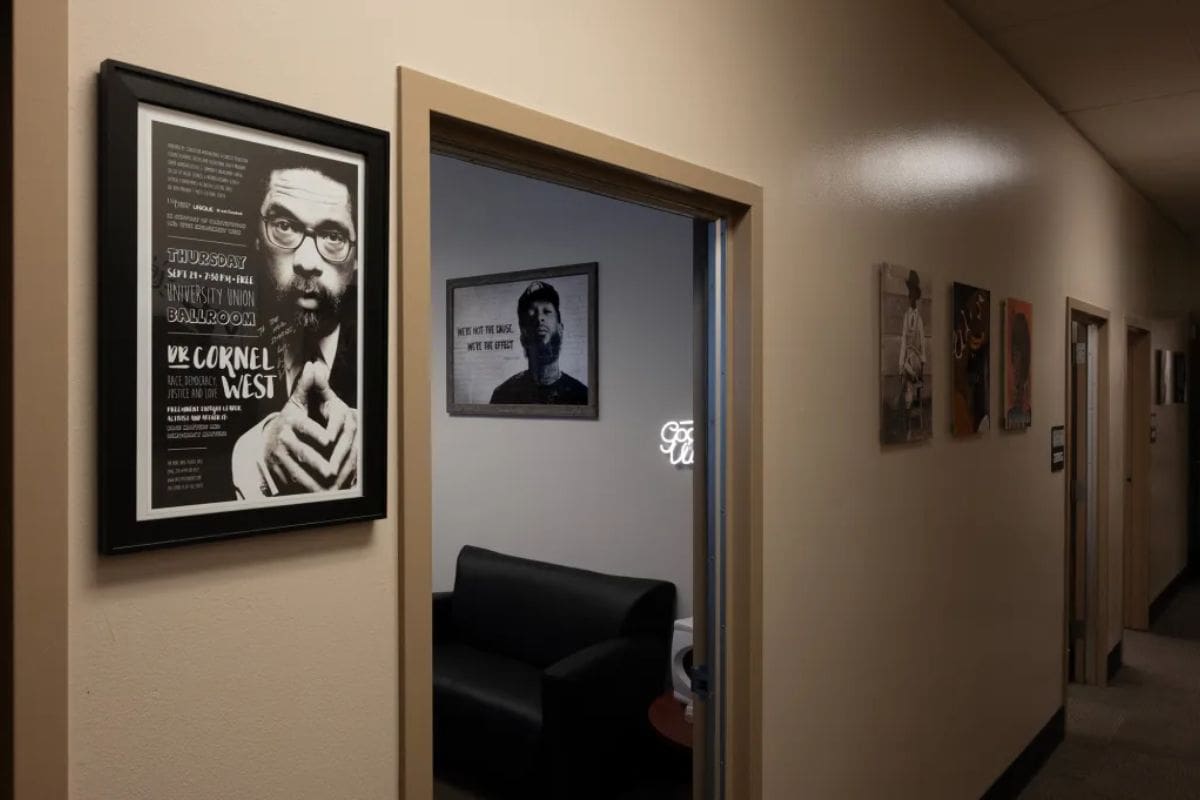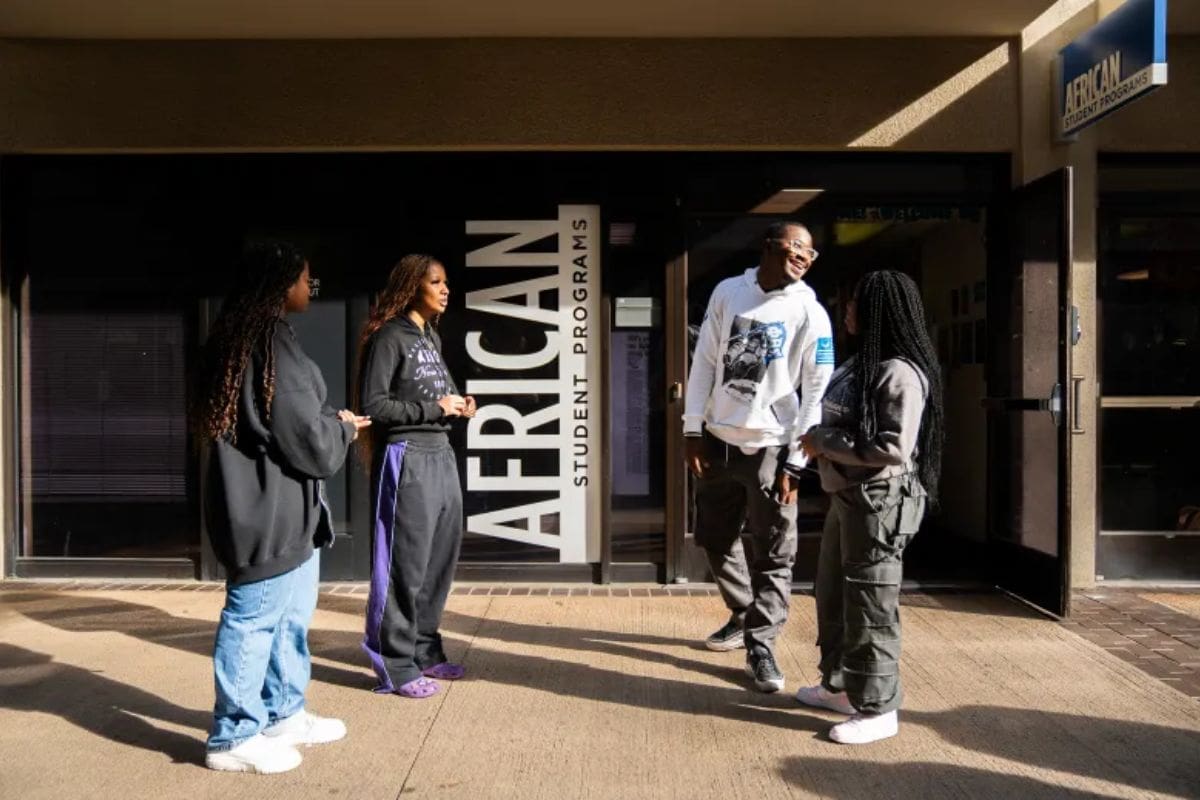California Black Graduation Struggles: California’s Black graduation struggles have been a focal point of discussion, particularly in higher education settings. The role of cultural centers in addressing these challenges has come to the forefront as a potential solution.
Leila Cormier’s recent workshop at Sacramento State’s MLK Jr. Center shed light on the importance of these spaces. While resource centers have proven to be a vital support system for Black students across California, disparities in graduation rates between the Cal State and UC systems continue to persist.
Stay tuned to discover how these cultural centers are not only offering support but also paving the way for academic success in the face of adversity.
Leila Cormier’s Inspiring Workshop at Sacramento State’s MLK Jr. Center
Leila Cormier’s impactful workshop at Sacramento State’s MLK Jr. Center showcases her courage and dedication to addressing the challenges faced by Black college students in California. As a fourth-year political science major, Cormier demonstrated bravery by conquering her fear of public speaking to lead a workshop that engaged 25 students. Her workshop, which focused on affirmations, merged her passions for mental health and plants to create a unique and supportive environment for Black students.
The workshop specifically tackled the sense of alienation experienced by Black college students in California, stemming from low enrollment rates. By addressing this issue head-on, Cormier not only empowered her peers but also shed light on the importance of mental health and self-affirmation within the Black student community. This initiative highlights her commitment to fostering a more inclusive and supportive campus environment.
Cormier’s workshop took place at the Martin Luther King Jr. Center, a vital resource hub at Sacramento State operational since 2015. The center offers essential services such as peer advising, tutoring, mentoring, and leadership development, all of which contribute to an increased graduation rate for Black students at the university. Cormier’s workshop exemplifies the proactive steps being taken to support and uplift Black students in California’s higher education institutions.
Resource Centers: A Vital Support System for Black Students in California
Resource centers play a crucial role in providing essential support for Black students in California’s higher education institutions, addressing challenges related to alienation and low enrollment rates. These centers serve as vital resources by offering a range of services and fostering a sense of community among Black students.
Here are three key elements that make resource centers indispensable for Black students in California:
- Safe Spaces for Connection: Resource centers provide safe environments where Black students can connect with peers who share similar experiences and challenges. These spaces offer a sense of belonging and understanding, promoting mental well-being and academic success.
- Cultural Affirmation and Empowerment: These centers celebrate Black culture, history, and achievements, affirming the value of Black identity within the academic setting. By offering culturally relevant programming and events, resource centers empower students to embrace their heritage and navigate higher education with pride.
- Academic and Emotional Support: Resource centers offer academic support services such as tutoring, mentoring, and study groups tailored to the needs of Black students. Additionally, they provide emotional support through counseling services, workshops, and resources to help students navigate the complexities of college life.

Disparities in Graduation Rates: Cal State vs. UC System
Examining the disparities in graduation rates between Cal State and the UC System reveals significant differences in academic outcomes for Black students within the California higher education landscape. Cal State faces challenges with lower graduation rates among Black students compared to the UC system, which demonstrates higher success rates. This contrast underscores the need for targeted support mechanisms to address the existing equity gap.
The article emphasizes the importance of establishing dedicated resource centers and intentional spaces that cater specifically to the needs of Black students. By providing a nurturing environment that fosters a sense of belonging and community, these centers play a crucial role in supporting Black students throughout their academic journey. Insights from institutions such as the MLK Jr. Center at Sacramento State and the African Student Programs at UC Riverside offer valuable perspectives on how to create such supportive environments effectively.
Challenges Faced by Cal State Bakersfield in Establishing a Black Resource Center
In light of the disparities in graduation rates between Cal State and the UC System for Black students, the challenges faced by Cal State Bakersfield in establishing a dedicated Black resource center have been notably significant. Despite efforts from faculty members like Tracey Salisbury, the absence of a designated space specifically tailored to meet the needs of Black students has posed obstacles. Here are three key challenges encountered by Cal State Bakersfield in setting up a Black resource center:
- Longstanding Advocacy Efforts: The advocacy for a dedicated Black resource center at Cal State Bakersfield has spanned over a decade, reflecting a persistent need for such a space. However, bureaucratic hurdles, paperwork, and administrative processes have impeded the progress towards realizing this resource.
- Financial Constraints: The financial implications of establishing and maintaining a Black resource center pose a significant challenge. Allocating resources for staffing, programming, and infrastructure within budgetary constraints adds complexity to the endeavor.
- Location Dilemma: Determining an appropriate location for the Black resource center is crucial yet challenging. Finding a central, accessible, and culturally affirming space on campus that fosters a sense of belonging for Black students is a critical consideration that requires careful planning and negotiation.


ALSO READ: Billionaires Hidden Move to Solve California Housing Woes Unveiled
News in Brief
California’s Black graduation challenges spotlight the role of cultural centers in higher education. Leila Cormier’s recent workshop at Sacramento State’s MLK Jr. Center exemplifies the proactive steps taken to address disparities. The Martin Luther King Jr. Center, operational since 2015, serves as a vital resource hub, offering essential services, fostering a sense of community, and contributing to increased graduation rates for Black students. Resource centers, crucial for mental well-being and academic success, provide safe spaces, cultural affirmation, and tailored support. Disparities in graduation rates between Cal State and UC systems underscore the need for targeted support mechanisms, emphasizing the importance of dedicated resource centers for Black students’ success.
Our Reader’s Queries
What university in California has the most black students?
Ranked by the highest percentage of Black students, the list highlights 278 California colleges. At the forefront is Los Angeles Southwest College, where African Americans make up an impressive 57% of the student body.
Where do most black students go to College?
The following universities boast the highest enrollment of Black undergraduate students:
1. Southern New Hampshire University (Manchester, NH): Enrolling over 15,800 students.
2. Dallas College: With a student population exceeding 14,500.
3. Houston Community College (Houston, TX): Hosting more than 12,600 students.
4. Georgia State University (Atlanta, GA): Featuring a student body of over 12,100.
What university graduates the most Black students?
Georgia State University achieves the highest annual graduation rate for Black students among all U.S. colleges.

